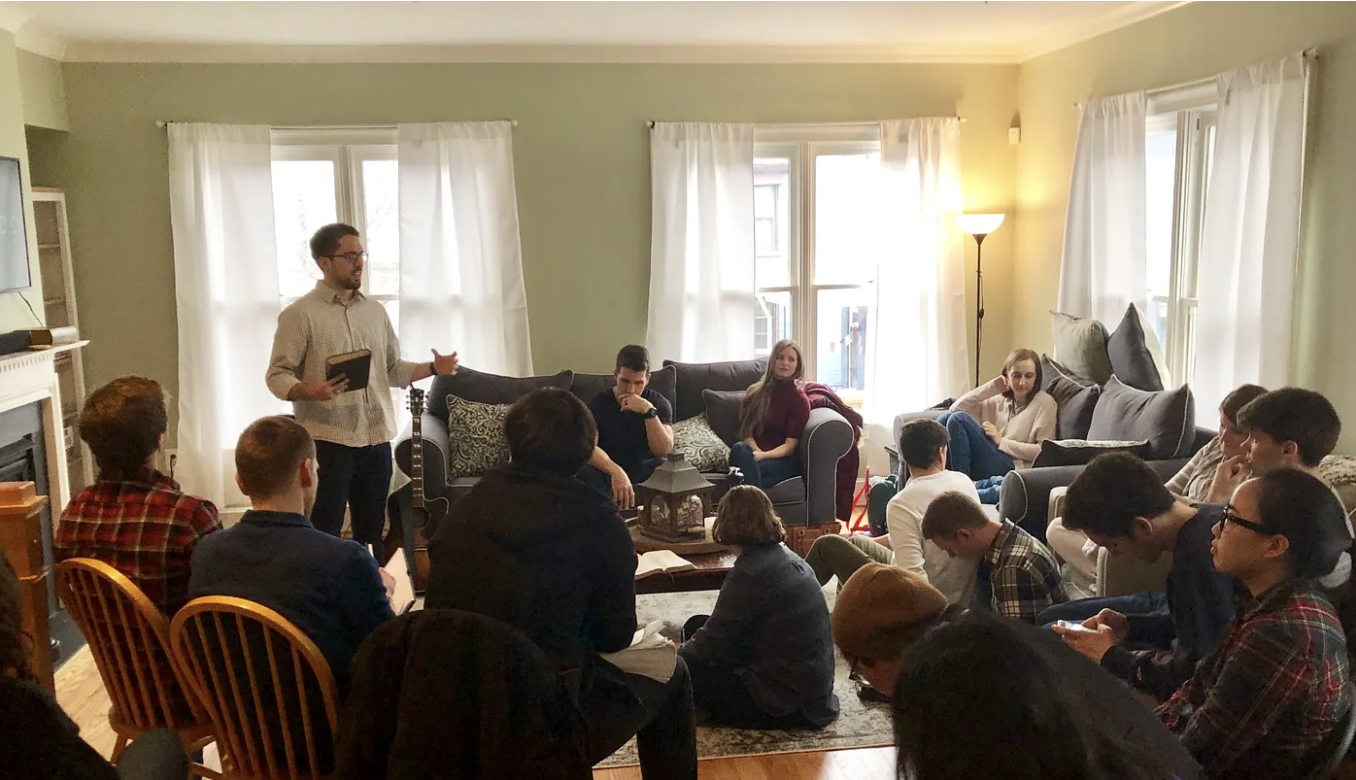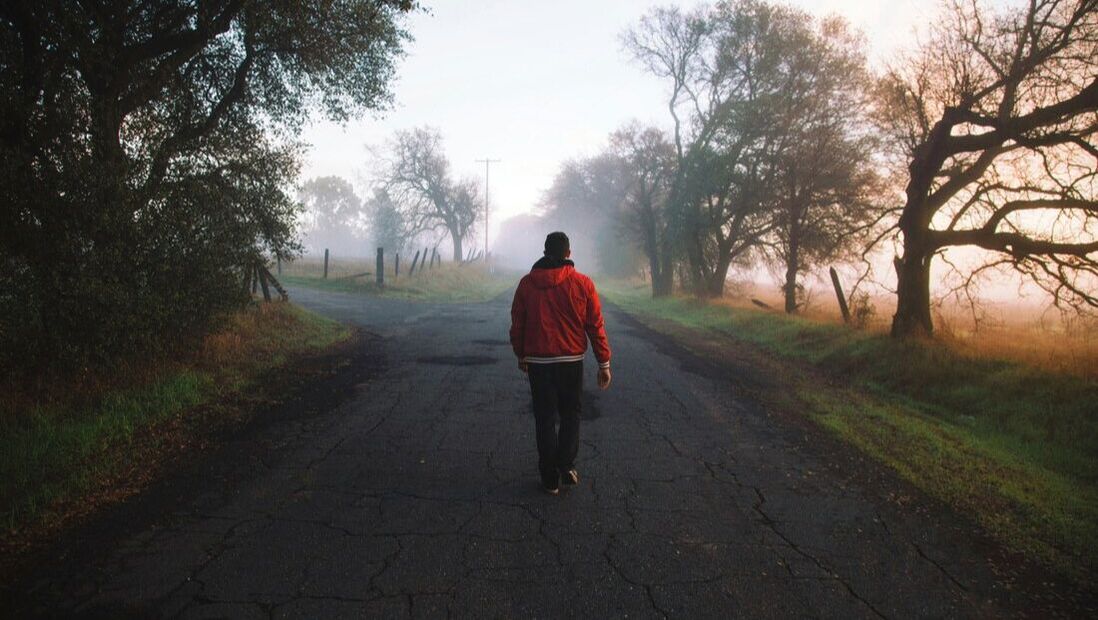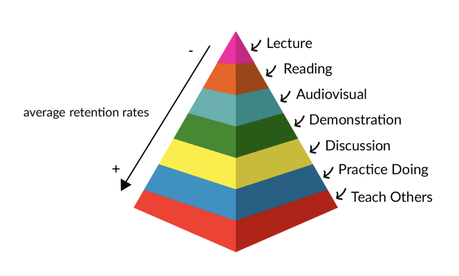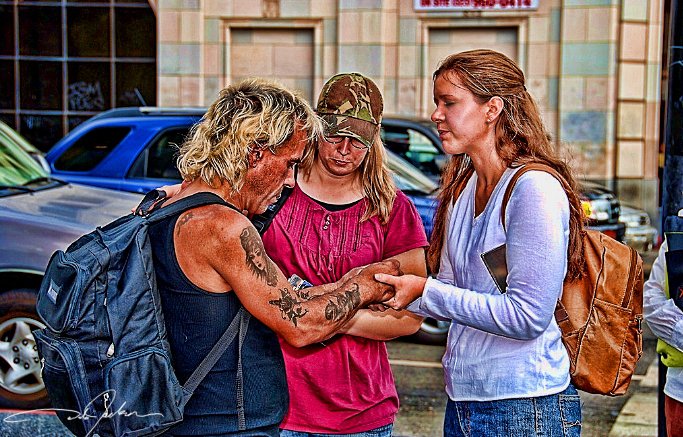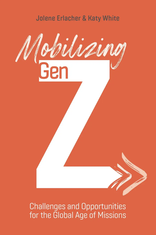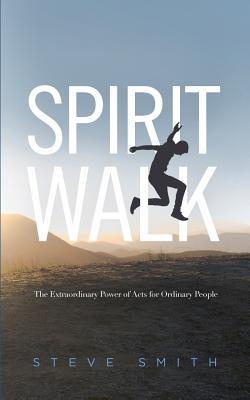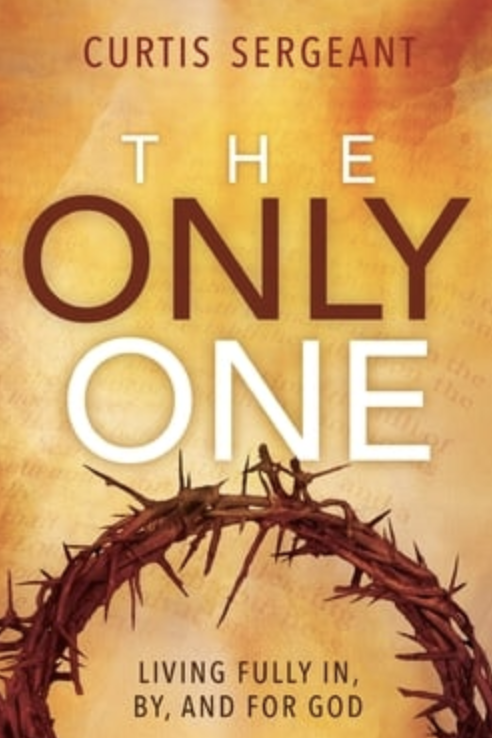|
Remember Covid? Pastors and churches across the country stepped into uncharted territory those first weeks of March and April in 2020. I prayed daily for my pastor friends and can only imagine the levels of stress that piled up around them as they led their respective churches through the Coronavirus crisis. With Sunday morning services needing to be cancelled, it left many scrambling to figure out how to do church. Because so much of what we do focuses on the Sunday morning service, this posed a very real challenge for church leadership. What do we do when our weekly hour and a half long service is no longer an option? That is the question everyone was wrestling with in those early months of the Covid crisis. I sometimes wonder now however if we missed an opportunity. It seems we've jumped back into business as usual and I'm wondering if there was another path to explore. I recently read an update from a Christian working in a Muslim majority country in Central Asia. They’d been working diligently alongside a local pastor to grow a small church made up of former Muslims. The group had found favor with a local property owner and had been meeting in a storefront building on Sundays for several years. Every Sunday the church of just over fifty gathered to worship together, to listen to the preaching of their very gifted pastor and to fellowship with one another. All that changed when the building owner began to come under increasing pressure from the local Muslim community. Even though he appreciated the monthly rent, he eventually decided it just wasn’t worth it and asked them to move out. What did they do when their weekly hour and a half long service was no longer an option? They didn’t have the option of streaming the pastor’s preaching and they knew they wouldn’t be able to find another building big enough for their needs. How could they go on? The pastor and elders met and realized that they were going to have to shift away from the larger group weekly gathering. They would need to meet in many smaller groups in peoples’ homes. Rather than centralized teaching, the teaching would need to be spread out among a number of young leaders. The pastor took the time he usually invested in preparing his sermon and instead began to invest that time in preparing men. While it has been a challenging time, it has also been a time of real growth. In the smaller group settings, people have found it easier to share, to interact and to practice the "one anothers" of scripture. Young leaders, given new responsibility and a lot more time with the pastor or an elder have matured quickly. One of the most exciting aspects of this shift to smaller groups meeting in homes rather than an official church building, is that members of the church have been more active in inviting their friends and neighbors to attend and non-believers have felt more comfortable to come and visit. More Muslims are both seeing and hearing the gospel than ever before and the church is growing - both spiritually and numerically. This church still finds a place to gather everyone together once each month for a larger gathering where they worship and celebrate and yes, listen to their pastor’s preaching. They are figuring things out as they have learned in a new, personal way the truth of Paul’s words in Romans 8:28, “And we know that all things work together for good to those who love God, to those who are called according to His purpose.” I hoped and prayed that the Coronavirus crisis would end quickly back in 2020. But I also prayed that God would shake up His church, refine us and teach us to walk in new, fresh (but very old) ways. I had hoped it would be an opportunity to learn from the church in Central Asia and China and Iran -- churches that cannot have large gatherings but rather come together in homes to “dedicate themselves to the apostles teaching and to fellowship, to the breaking of bread and to prayer.” Don't get me wrong - I love my local church family and our church and I don't think the legacy church is going anywhere or needs to. I just wonder if there are other ways to do church that more reflect Jesus' focus on disciple making rather than just a holy huddle. Are there hybrid models we can discover or create? Can we reimagine a church that is less about gathering and more about going? As I wrestle with scripture I suppose I'll always wrestle with these questions and my hope is that this article will help others begin to wrestle as well. Practical Handles Here are a few resources I’ve found helpful to begin to have a handle on how to help our congregations gather in smaller groups in homes.
The Coronavirus was challenging, there can be no doubt about that. It may be a challenge unlike any we've faced in our lifetimes though I suspect there will be more to come. It may not yet be the time to consider new ways of doing church in North America, but it seems there is an opportunity to discover new rhythms, new methods, new wine skins that may lead to greater levels of fellowship, faithfulness, disciple making, evangelism and maturity. And looking at the data coming out of the Barna Group and Pew Research, we could use greater levels of all of those. If you found this article helpful, pass it along to a friend who you think may benefit from reading it.
0 Comments
“Why, my soul, are you so dejected? Why are you in such turmoil." – Psalms 42:5 It’s been a full season of ministry, of working on good, kingdom projects and investing in people that God brings across my path. In every way, ministry has been rewarding, purposeful and mostly, a lot of fun. I really do love the work of the ministry I’m a part of. And yet. What started as a tiredness which I attributed to my week-long battle through on and off fever and a hacking cough - it’s been going around - has now settled into a low grade feeling of blah. It’s not depression. It’s not despair and I wrestle to even know how to explain it but it's there. And as I actually sit with it and think back, it's been there for a while, weeks perhaps. It is unfortunately a familiar feeling, something that visits once, sometimes twice a year and which usually, as Douglas Rumford observes, follows a season where I find myself “unable to keep all the fires that we’ve started fueled.” I took on too much. One project in particular has turned into a bit of a roller coaster of on again off again waiting with a lot riding on my shoulders. At this point it’s just a season of the blahs, of fighting to stay motivated and occasionally feeling tired throughout the day. I’m thankful that I’ve had good mentors and friends that have taught me to see the symptoms and through the years I have learned to respond proactively and early. It is easy to see however that, left untended, this sort of season could easily descend into full scale burnout. We read about it in others more than we’d like and wonder why it happens so often to pastors and leaders and regular people alike. One thing that I often find helpful is to pick up a book on the topic of soul care - that’s what it is after all - and so yesterday I began Douglas Rumford’s Soul Shaping. I’m just one chapter in but found this first chapter, “Recognizing the Symptoms of Soul Neglect” an excellent resource for anyone wondering if they are wandering into the beginnings of the blahs or the blues or the dark night of the soul. His list of ten symptoms is a useful rubric to hold yourself up to if you’re not quite sure. The list is a simple tool which will help you reflect on the state of your soul. I won’t explain each here, most are pretty easy to understand, but I’d encourage you to prioritize setting aside regular time to reflect on your life and thoughts and how your soul is doing. In our hurried, harried lives of the 21st century few prioritize anything other than keeping busy doing productive things. This of course flies in the face of John 15 and the abiding life that Jesus calls us to but it seems the siren song we cannot restrain ourselves from following. Here are Rumford’s list of ten soul symptoms:
It should be noted that everyone will find themselves in seasons like this from time to time. There are things we can do to guard against it but we do live in a broken world. We started the article with a Psalm of David, a man after God’s heart and he sounds like he’s in a pretty dark place. The Apostle Paul once wrote that he “despaired of life itself” (1 Corinthians 1:8). Charles Spugeon, in a talk to ministerial students, once said, “Fits of depression come over the most of us. Usually cheerful as we may be, we must at intervals be cast down. The strong are not always vigorous, the wise not always ready, the brave not always courageous, and the joyous not always happy.” If you reflect on the list above and find you check off more of the symptoms than you’d like to admit, it doesn’t necessarily mean that you’ve somehow been disobedient to God or failed. It does mean that you probably need to take steps to return to a place of greater soul health though. Near the end of the chapter, Rumford says, “Paying attention to our hearts is the first step to valuing ourselves – as God values us – and to setting us free to value and love others – as God through Christ values and loves them.” Set aside some time this week - a good half day or so - to sit with the Lord and reflect on the state of your soul. Other Helpful Books
If you found this article helpful, pass it along to a friend who you think may benefit from reading it. Last month I listened to an episode of the LEAD Pods Podcast about the growing challenges of raising up young leaders for our present and future churches. Among other things brought up in this insightful conversation was the reality that our church leadership is aging while there are fewer and fewer young leaders being raised up to replace those who retire. The average age of a pastor today is 60. It was 44 in 1992. Sam Rainer wrote about this last summer saying, “A typical pastor today is approaching retirement age. Frankly, there are not enough younger pastors to replace a large group of retiring Baby Boomer pastors. The perspective of some churches with older, retiring pastors is exacerbating the problem. Once they begin to search for a pastor, they will look for an idealized version of a 30-something Baby Boomer pastor from a bygone era. Obviously, this pastor does not exist. The few candidates available will look and lead very differently. As a result, churches will struggle to fill positions as willing candidates get frustrated with search teams.” Landon Coleman, in his article “Why are Pastors So Old Today” does a good job of highlighting six reasons for the void of upcoming pastors and a few thoughts about a way forward including the admonition that churches, “should not waste time blaming the younger generation, and they should not try to pin the blame on seminaries. Instead, churches should work to train up and raise up pastors from within their own ranks. Seminaries are a helpful part of preparation for pastoral ministry. Personally, I can’t imagine doing my job without seminary. However, in the plan and the providence of God, it is the local church’s job to raise up pastors – not academic institutions.” This brought me back to thinking about Gen Z. I wrote recently about mobilizing Gen Z for missions and I often hear folks (myself included) bemoaning this young generation and the ways they live and believe and think about life and faith. I don’t always understand them, however blaming them does not solve any of the challenges facing our missionary efforts or the future of the American church. It seems that the future of the church as we know it, led by highly educated, paid professionals, may soon be a thing of the past. Our seminaries are turning out fewer and fewer pastors and most going to college today are more focused on avoiding debt than stepping into a calling to serve the local church (or any of the humanities for that matter). The church of tomorrow will be led by Gen Z whether we like it or not and so we need to think more intentionally about how to raise them up, empower them and call them into service for the Lord. Jolene Erlacher, in a recent Leading Tomorrow podcast, highlighted the predominant learning styles of Gen Z. This got me thinking about how churches and mission agencies can be working to raise up tomorrow’s leaders and the new ways we must begin to think about this task. In the interview, Erlacher describes what she calls “EPIC” learning. EPIC stands for experiential, participatory, image rich, and connected. As I listened, it occurred to me that this type of learning is in line with what the pedagogical experts have always said about the best ways to learn, ways that our churches have almost always ignored. EPIC learning looks a lot like the old learning pyramid that has been around for the last few decades. Those over forty have known little else but lecture and reading as the ways we learn. While these may have worked for us, we need to rethink how we teach and make disciples of our younger counterparts. As a member of the Gen X cohort, I still love to learn in these ways, but it’s not about me. We need to explore this new way of teaching because it is the way Gen Z learns, because it’s actually more in line with the disciple making principles of Jesus, and because, if we don’t, we’ll probably begin to lose more and more of them as they find the church and mission agency irrelevant and more interested in protecting institutional traditions than in building the kingdom. It seems in many ways like the church in North America is approaching a hinge moment in history. Changes are coming. The church as we know it may be on its last leg. It may not look the same in the future. It may lose its institutional nature. It may no longer be able to support fully paid professionals. Two things are for certain however: The Church will continue to be the means through which Christ’s kingdom expands and it will be led by Gen Z. If you walk long enough in the various neighborhoods of the Christian faith, you will inevitably begin to notice the cul de sacs where groups gather around all sorts of factors: ethnic identity, doctrinal beliefs, native languages, experiential aspirations, worship style preferences - even favorite translations of the Bible. Finding our way into groups who are like us and with whom we feel we can walk out our understanding of Christian belief comfortably and faithfully is of course natural. In as much as we have all grown up being shaped by family and church life experiences, books we read and sermons we listen to it is a wonder we don’t have more groups dotting the landscape of Christianity. Like a cityscape filled with the architectural styles developed by generations of creative genius, the world of Christianity is a vivid expression of the beauty of the image bearing nature of human personality and perspective and cultural creativity. We are of course the body of Christ, individually and corporately. For just as we have many members in one body and all the members do not have the same function, so we, who are many, are one body in Christ, and individually members one of another (Romans 12:4-5). When lived in balance and with a proper perspective built on love and humility toward one another, Christianity is an amazing expression to a lost and broken world of the goodness, truth and beauty of God. Our witness is bold and our fellowship is a reflection of the love of 1 Corinthians 13. We are patient and kind and we don’t envy or boast. We aren’t proud. We don’t dishonor others and are not self-seeking or easily angered. We keep short accounts - no records of wrong. We never delight in evil and together rejoice in the truth. We always protect - even those we disagree with over doctrine or politics. We trust and hope and persevere, and we do all of this because love never fails. When we live Spirit filled and activated lives in the shadow of the 1 Corinthians 13 rubric of life, we become together what Corrie Ten Book called, “tramps for the Lord” who have left our hiding places to roam the Gap with the Savior. We are heaven’s expatriates, camping where the kingdom is best served. We are earth’s dispossessed, who’ve journeyed forth to give a dying world not only the Gospel but our own souls as well. We are members of God’s global dispersion down through history and out through the nations, reaching the unreached and blessing the families of earth.* Our differences then become the seasoning of our witness rather than the warts about which the world sees us fighting and arguing. We will still have robust discussions - arguments even - over points of interpretation, ideas about how to engage the world, what worship should look like and everything in between, but these discussions will be covered in love and cloaked in humility knowing that in this life, we see through a glass darkly. We will strive to walk in the paradox of grace and truth, knowing that grace without truth is not grace and truth without grace is not truth. And because we will fail often, we’ll be quick to ask forgiveness of our brother or sister. While all of this seems a tall order, it is the way forward for the North American church. We’ve been duped into kingless kingdoms of social justice, culture warring kingdoms of god and country or the bland sort of cultural Christianity which is little more than a safe civil religion. None of these hits the mark. Let us therefore work together in love to pursue our Lord into the harvest, shining our light in the darkness, being salt and yeast in a broken and distorted world, edifying and encouraging one another, dedicating our lives to studying the word of God, to prayer, to fellowship, to bold witness and above all, to love. A new commandment I give you: Love one another. As I have loved you, so you also must love one another. By this everyone will know that you are my disciples, if you love one another. Photo Credit * David Bryant defines world Christians with this description in his fantastic book, In The Gap: What it means to be a world Christian. What is the person of peace? It's a term that is increasingly used both in the church and in the mission field. Practitioners of disciple making movements (DMM) often talk of searching for the person of peace and yet different groups use the term in different ways. All are correct but for those just beginning to explore the idea of the Person of Peace, a clarification might be in order. Some define the Person of Peace (PoP) as anyone who welcomes and opens up their relational network to to the messenger - be that a missionary or a local lay believer crossing the street in their neighborhood. In this use, the PoP doesn't necessarily need to be someone who initially accepts the message, but rather gives permission to the messenger to share with the group. They are often a gatekeeper of sorts - an elder of the village or the patriarch of a family. God is using them to open the door for the message to go forward in their context. This is also sometimes referred to as a House of Peace. A second way the idea of the Person of Peace is used is to simply indicate someone whom God has prepared to receive the gospel. They are a seeker, a God prepared person. Perhaps they've had a dream or a vision or have had a crisis in life that caused them to do some deep soul searching. Their heart is prepared to respond to the gospel. They are ready to receive the messenger and the message. A final way I often hear to idea of the Person of Peace discussed is that they not only are prepared to receive the gospel, but they are also ready and able to reproduce and share the good news with other. They receive the message and the messenger but they also readily receive the mission. When the woman at the well believes Jesus in John 4 she immediately takes that message back to he village where she tells everyone the good news and brings them to Jesus. Many would also refer to this person as a "Fourth Soil Person" who reproduces 30, 60 or 100 times from the Parable of the Sower. All of these definitions work but as you are reading the literature or listening to interviews with practitioners, it is helpful to understand how they are using the term. It was a bit confusing for me the first time I ran into the different ways it was being used. Perhaps there are other ways to think about the Person of Peace. If so, let me know your thoughts in the comments. Until then, I'd encourage you to download this discovery tool to help you learn about the Person of Peace from Jesus' ministry in the gospels. Trainer's notes are included on page three. As we immerse ourselves in the story of the scriptures, we allow the Holy Spirit to use them to shape our view of the world, of ministry and of ourselves. Scripture hammer trainings allow a trainer to step out of the way and allow the Bible to do the heavy lifting of the training. They require little charism on the part of the trainer, are hard to argue with and place a tool in the hands of those we are training that is immediately reproducible.
The basic idea is to create a list of scriptures that all point toward the basic Biblical principle or lesson you are wanting your trainees to grasp. A scripture hammer study is best done in groups of 2-5 and then debriefed as a group. You can create your own for any topic you'd like to train on. I've created a one page handout with six scripture hammer studies that I've learned from others and that I've been using to train. The focus of these particular studies are:
[CLICK HERE TO DOWNLOAD THE SIX STUDIES] I've written previously about a few of these topic and you can check those out at the links below: A short video sharing a framework for understanding suffering. This framework has helped me understand the role of suffering in the life of the disciple of Jesus. The sound quality isn't perfect, but I'd love to hear your thoughts. What would you add to this framework? How have you been developing a theology of suffering? Share your thoughts in the comments below. In the 18th chapter of the book of Luke, Jesus encounters the rich young ruler. If you’ve been a follower of Christ for long, it is probably a familiar story. If not, stop and read it here. A devout man approaches Jesus wondering what he must do to be saved. Jesus walks through the commandments - have you obeyed these? The man replies confidently that he has kept the commands all of his life. And then Jesus does a curious thing. He asks the man to do one more thing: sell all that you possess and distribute it to the poor, and you shall have treasure in heaven; and come, follow Me. The story follows that, because the man was very wealthy he became very sad and presumably, walked away. Following Jesus is a tall order. My friend Justin uses this story in trainings to highlight the reality that Jesus isn’t looking for lukewarm Christians. This isn’t the only time that Jesus’ words and teaching drive away potential followers. There’s that crazy scene in John 6 where “many of his disciples turned back and no longer followed him.” Jesus is looking for committed disciples. He will build his kingdom not with crowds but with dedicated disciples. While the world yearns for numbers, Jesus is looking for committed men and women. Justin lays out what this commitment might look like using the great commission. He draws out five commitments from the passage and they provide a helpful rubric through which I can reflect on my own heart. I think they will be helpful for you as well. Then Jesus came to them and said, “All authority in heaven and on earth has been given to me. Therefore go and make disciples of all nations, baptizing them in the name of the Father and of the Son and of the Holy Spirit, and teaching them to obey everything I have commanded you. And surely I am with you always, to the very end of the age.” Five Commitments To Be A Disciple of Jesus
It starts with our willingness and commitment. If you are a leader, a good question to ask first is, "Am I willing?" but the next question has to be, "Are the people I am investing in willing?" Are they committed disciples or merely lukewarm attendees. You can fill the pews with the latter but Jesus wants to transform your community, your city, your state and nation - he will turn the world upside down with unschooled, ordinary men and women if they will commit themselves to living the surrendered life and being with Jesus. As we answer this question we can begin working toward the next question as well: Are they able?
It is no mistake that Jesus bookends his commission with authority and presence. I can do much in my own power but Jesus reminds me that unless I live the surrendered life which I can only do if I abide in Him and experience His presence, little of what I do will have any eternal impact. Justin leads a great ministry called Primary. He would love to come alongside you and coach you and your fellowship into the committed life of disciple making. Contact Justin "What can I do?" It's a question that Jesus' disciples all across the world are wrestling with during these unprecedented times. Covid-19 has locked us indoors and it seems the best way to love others is to stay away from them. These are indeed strange days. For many, you've spent the last years investing in the lives of friends who do not yet follow Jesus. You love them dearly. You've served them tirelessly and now, you can't see them. And so we ask, "Lord, what can I do?" For many the last years have been spent doing things for God. We serve the church. We help with programs. We feed the poor. We go to this event and that activity. We lead Bible study. We do, do, do. And so when the world comes to a halt, we ask, "Lord, what can I do?" For myself, this has been a journey into a lesson the Holy Spirit has been trying to teach me for the last few years. I'm a slow learner! I am by nature, a doer. Perhaps we all are. But in this moment, when "doing" has been in many ways stripped away, I've found myself wandering, wondering, worrying. Am I doing enough? Am I doing the right things? And who am I? The first week in particular was tough. I'd wander in and out of a sort of discombobulated haze, not knowing up from down, not knowing what I'd do with myself once I finished the next email I was writing or the call I was on. My "doer" was being battered and I didn't know what to . . . well, do. In it all I could hear the whisper of God in the distance, an inviting calm that, as the days wore on and my chaos subsided, I began to listen to and to recognize. Be my child. Be my friend. Be a member of my church. Be a citizen of heaven. Be my workmanship. Be my new creation. Be justified and righteous. Be secure in my hand. Be free from condemnation. Be with Me. Be with Me. Be with Me. How are you finding ways to simply be with Jesus this week? Dear Dads, It seems crazy to think that just two weeks ago life was relatively normal. Now, it seems that everything has changed. There is a lot of uncertainty and if you’re like me, you’re still not entirely sure what is going on. There is a lot that we are all going through and a lot that we all need encouragement in right now, but with this letter I want to encourage you to do one thing: lead on Sunday morning in your home. Covid-19 is and will continue to be disruptive and hard. But in every difficulty there is opportunity. God meant it when he had Paul pen the words of Romans 8:28, “And we know that in all things God works for the good of those who love him, who have been called according to his purpose.” The reality of “church at home” is probably going to be a reality for the foreseeable future. Our church leaders and pastors are doing a great job creating online content that can help us through this time. And while it's good to sit down in front of the TV or computer screen and watch and listen as a family, there is an amazing opportunity to step up and lead your family in being the church, in actively doing church at home. Jesus told us that “where two or three gather in my name, there am I with them.” Gather your family in the name of Jesus. Lead them in prayer and worship and in fellowship. This is an opportunity to teach your children to seek the face of Jesus, to model for them prayer and worship and what it looks like to be a man of God who looks to actively apply the teachings of Jesus. Help them learn to actively apply the teaching of Jesus in their lives. There is a simple format that can be followed that will help you lead your family. Divide your Sunday morning as a family into three thirds. Looking Back CARE: The first third of your time can be focused on caring for one another and worship. Start by praying for your time together and then ask two simple questions and allow everyone to share about how their week went.
After everyone has shared, invite your wife and kids to join you in praising God for the things that are going well and to pray for one another about the needs that were expressed. WORSHIP: Lead your family into a time of worship. Some of us are musically gifted, but for the rest of us this may mean asking your kids what their favorite worship songs are and finding them on Youtube to listen to or sing along with. It may be an opportunity to read some of the Psalms together. Regardless of what this looks like at your home, have fun worshiping the Lord together. If you have young kids, let them beat spoons on a pan or dance as they worship. CAST VISION: Is there a verse that has been particularly meaningful to you this week? Is there an area you are hoping you and your family can grow in? Take a moment to cast some vision for the things that God is putting on your heart for your family. Share a verse from the Bible to encourage your family in the way you know they need to be encouraged. Looking Up The second third of your time together can be spent looking into the word of God together. Acts 2:42 paints a picture of the early church saying "that they devoted themselves to the apostles’ teaching and to fellowship, to the breaking of bread and to prayer." This is the time to learn from the word of God. This would be a great time to tune into your church’s online service to listen together to your pastor’s message for the week. You could also use the SWORD method to lead your family in discovery Bible study, helping teach your kids how to dig into God’s word for themselves. Together you will learn what Jesus has for each of you in a particular passage of scripture. [learn about discovery Bible study] Regardless, this second third is a time to dedicate to studying the Bible. Looking Ahead The final third of your time together should be spent looking ahead to the week to come. It is a time to plan together how you can apply what you’ve learned and be a blessing to others in the coming week. A few simple questions for this time are:
After you have discussed these as a family, ask your kids to hold you accountable to actually do the things you’ve said you would do. End your time together by praying for your family. Then enjoy a great meal together! Covid-19 is going to be a life changing event for all of us. But as fathers we have an opportunity to step in and lead our families into a deeper place of faith and following. Imagine if our kids look back at this time and remember most of all that their dad led them closer to Jesus! May it be! |
The E2E Community
Categories
All
Good Books
Archives
April 2024
|
Proudly powered by Weebly

